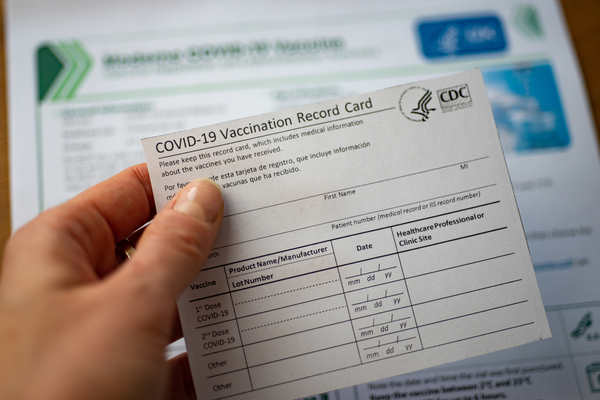More than half of all eligible Americans are fully vaccinated against Covid-19, which is becoming increasingly key to unlocking pre-pandemic activities like sporting events, concerts, and dining. More employers are also requiring proof of inoculation from their workers.
The best way to prove your vaccination status, though, differs depending on where you are. Since the Biden administration doesn’t support a federal vaccine passport, the governance has defaulted to individual states to create policies, and — in some cases — their own vaccination passport apps to help the public prove their status.
Here’s how to prove your vaccination status AND safeguard your personal data, courtesy Yahoo Money and Dr. Georges Benjamin, MD, executive director at the American Public Health Association.
Should you carry your vaccination card? The short answer is no, Dr. Benjamin said. “My advice is not to carry your card around. You very well may lose it,” he said. “It’s not impossible to replace, but it’s work to get it replaced.”
Instead, start by taking a photo of your vaccine card with your phone, he said. Dr. Benjamin also recommended starring the photo as a favorite so it can easily be found when needed. As another added measure of insurance, print additional hard copies of the card to store in a secure location.
As tempting as it may be to flaunt your newly vaccinated status to friends and family via social media, don’t. Posting your vaccination card to social media is a pipeline for counterfeiters who can use your full name, birth date, and dosage information to profit off of your personal data.
Vaccine cards should be treated like other personal and important government-issued documents like a Social Security card or passport, and when not in use, left at home for safekeeping, Dr. Benjamin said.
Why shouldn’t you get the original card laminated? Laminating the card to protect it from wetness or moisture is a good idea in theory, but Dr. Benjamin shared that lamination essentially renders the card useless when it comes to adding future immunizations or booster doses.
“I suggest people not laminate their cards,” he said. “[The card] has a couple of other spots on the front and back sides for you to use for your booster shot…the problem is you in essence laminate over the space that they would use to document your booster shots.”
If you absolutely must get your card laminated, wait “until the card is all filled out with other booster shots,” Dr. Benjamin said. He also added that it’s a task best left to professionals to mitigate the risk of accidentally destroying it or making the information illegible.
Or, some businesses like Office Max and Staples have been offering to laminate copies of your Covid vaccine card. All you need to do is take your card in, and ask them to copy and laminate it. That way you can keep the original at home in a safe place, but still have a durable, laminated copy to keep with you when you need it.
Is there one vaccination app that you need? Interstate and especially international travel can be difficult to navigate as the specifics on vaccine passport reciprocity are vague. Without a national framework for vaccine passports, Americans have to rely on their states’ protocol, if one even exists, or an analog piece of paper.
Residents of Arizona, Louisiana, Maryland, Mississippi, North Dakota, Washington, West Virginia, and Washington, D.C., can download the free app MyIR Mobile to use as their digital passport to present when needed. New Yorkers who were vaccinated in New York can download the free Excelsior Pass and Californians have access to My Vaccine Record for their own passports.
For Americans living outside the scope of states using digital passports to verify vaccination status, apps like CLEAR, Common Pass, and VeriFLY — which are commonly used for air travel — have created plug-ins for users to include vaccine status.
What if you lose your card? If you lose your vaccination card, contact your vaccination provider, such as CVS, Walgreens, Rite Aid, or your local government office. If that doesn’t work, reach out to your state health department’s immunization information system (IIS). All COVID-19 vaccinations must be reported to each state’s IIS. Your state health department will email or mail a copy of your vaccination card, but keep in mind the process could take up to two weeks, or perhaps longer right now since government agencies are struggling to keep staffed and catch up because of, well, COVID-19.
—
Photo Credit: Evgenia Parajanian / Shutterstock.com
